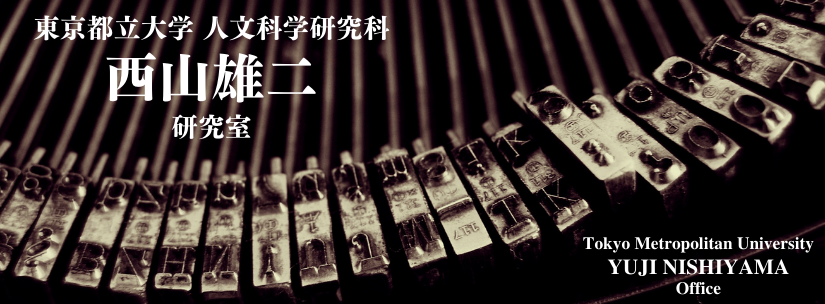映画概要
Japanese
映画「哲学への権利―国際哲学コレージュの軌跡」
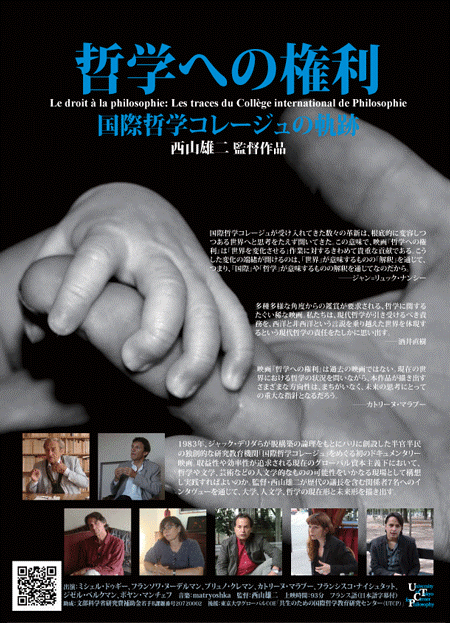
映画「哲学への権利 ― 国際哲学コレージュの軌跡」
映画「哲学への権利―国際哲学コレージュの軌跡」は、1983年にジャック・デリダやフランソワ・シャトレらがパリに創設した半官半民の研究教育機関「国際哲学コレージュ(CIPh)」をめぐる初のドキュメンタリー映画である。映画は、歴代議長ミシェル・ドゥギー、フランソワ・ヌーデルマン、ブリュノ・クレマン、現副議長ボヤン・マンチェフ、新旧のプログラム・ディレクターであるカトリーヌ・マラブー、フランシスコ・ナイシュタット、ジゼル・ベルクマンへのインタヴューから構成される。この研究教育機関の独創性を例として、本作品では、収益性や効率性が追求される現在のグローバル資本主義下において、哲学や文学、芸術などの人文学的なものの可能性をいかなる現場として構想し実践すればよいのかが問われる。監督・西山雄二が歴代の議長を含む関係者7名へのインタヴューを通じて、大学、人文学、哲学の現在形と未来形を描き出す。 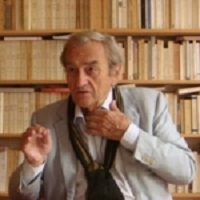
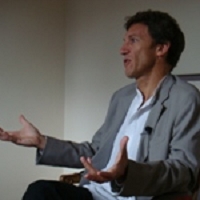
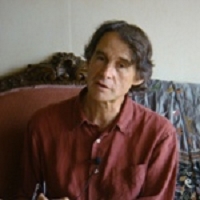
映画は全8章で構成されており、まず第1章「プロフィール」では各インタヴューイーが国際哲学コレージュでの経歴を語る。第2章「国際哲学コレージュの定義」では、コレージュで実践される研究教育活動の独創性が浮き彫りになる。第3章「国際哲学コレージュと大学」では、各インタヴューイーが他の学術制度とは異なるコレージュの特徴(無償性の原理、教員のあいだの平等、カリキュラムやプログラムの理念など)を物語る。第4章「国際哲学コレージュの理念」では、コレージュが提唱する「インターセクション」の理念が、英米圏の大学でのカルチュラル・スタディーズのような「領域横断性」の理念と比較される。
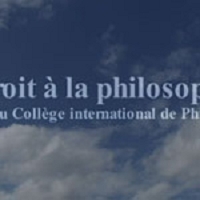
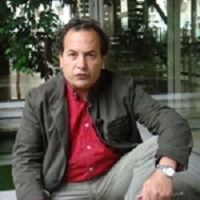
第5章「国際哲学コレージュと経済的価値観」で描き出されるのは、グローバル資本主義下で収益性、効率性、卓越性が重視されるなかで人文科学が直面する決定的な経済の問題である。第6章「場所の問い」では、固有のキャンパスをもたない国際哲学コレージュの事例に照らし合わせて、研究教育活動とは何処でおこなわれるのか、という問いが提起される。第7章「困難」ではコレージュが現在直面しているさまざまな問題が語られる。最終章「ジャック・デリダと国際哲学コレージュ」では、各インタヴューイーが、デリダの哲学やコレージュに対するデリダの貢献について回顧的に証言する。 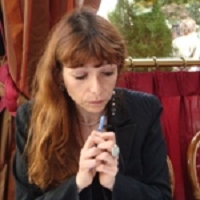
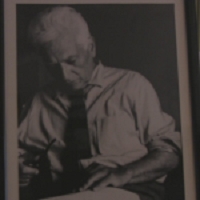

ドキュメンタリー映画 「哲学への権利 ― 国際哲学コレージュの軌跡」
(Le droit à la philosophie: les traces du Collège international de Philosophie)
出演:ミシェル・ドゥギー、フランソワ・ヌーデルマン、ブリュノ・クレマン、カトリーヌ・マラブー、 フランシスコ・ナイシュタット、ジゼル・ベルクマン、ボヤン・マンチェフ
音楽:matryoshka (Novel Sounds)
監督:西山雄二
後援:東京大学グローバルCOE「共生のための国際哲学教育研究センター(UTCP)」、勁草書房
上映時間:84分 フランス語(日本語字幕、英語字幕、韓国語字幕、ドイツ語字幕)
English
The Right to Philosophy: Traces of the International College of Philosophy
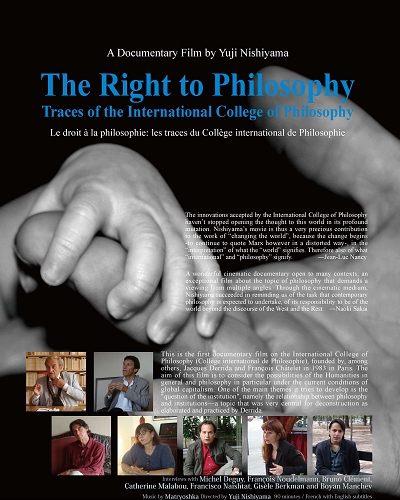
The Right to Philosophy: Traces of the International College of Philosophy
The Right to Philosophy: Traces of the International College of Philosophy
(Le droit à la philosophie: les traces du Collège international de Philosophie)
A Documentary Film by Yuji Nishiyama
Deconstruction is an institutional practice for which
the concept of the institution remains a problem. ‒ Jacques Derrida
This is the first documentary film on the International College of Philosophy (Collège international de Philosophie: CIPh), founded by, among others, Jacques Derrida and François Châtelet in 1983 in Paris. The film consists of interviews with former presidents Michel Deguy, François Noudelmann and Bruno Clément, current vice-president Boyan Manchev, and with former and current program directors Catherine Malabou, Francisco Naishtat and Gisèle Berkman. The aim of this film is to consider the possibilities of the Humanities in general and philosophy in particular under the current conditions of global capitalism. One of the main themes it tries to develop is the "question of the institution", namely the relationship between philosophy and institutions—a topic that was very central for deconstruction as elaborated and practiced by Derrida. 


The film consists of eight chapters. In the first introductory chapter, "Profiles", each interviewee narrates his or her own profile in relation to the CIPh. The following chapter, "The Definition of the CIPh", highlights the very original characteristics of the research and educational activities taking place at the Collège. In the third chapter, "The CIPh and Universities", the interviewees explain the original nature of the CIPh in comparison with other academic institutions, including its principle of being free of charge, the equality among the professors, and its conceptions of curriculums and programs. Chapter four, "The Idea of the CIPh", contrasts the notion of "intersection" established by the Collège with that of inter-disciplinarity in departments such as Cultural Studies or Comparative Studies, mainly in the Anglo-Saxon academic landscape. 


The fifth chapter, "The CIPh and Economic Value", presents crucial problems faced by the human sciences stemming from the demands of global capitalism for profitability, efficiency, excellence etc. Chapter six, "The Question of Place", asks where research and educational activities can take place by looking at the example of CIPh as an institution that has no campus. The seventh chapter, "Problems", presents various problems the CIPh is currently facing. In the last chapter "Jacques Derrida and the CIPh", the interviewees recall Derrida's contributions to the Collège and to "the right to philosophy". 


Film Screening
From September 2009, this film have and will be shown at numerous locations in U.S.A. (The New School for Social Research, Cornell Univ., New York Univ., Yale Univ.), France (Collège international de Philosophie, Univ.de Paris VIII, Univ.de Bordeaux III), Japan (more than 20 universities, movie theater, book store, cafe, etc.), Hong Kong (Chinese Univ.of HK, Lingnan Univ.), Korea (Yonsei Univ., SuyuNomo), Germany (Humboldt Univ.of Berlin, Univ.of Leipzig, Univ.of Wuppertal) and England.
Messages
The International College of Philosophy, since its foundation of more than two decades ago, would have been a place of experiment and communication of what, under the name "Philosophy" goes beyond the discipline received under this name, and concerns in a transversal manner all the knowledge and all the thought of our world. "Philosophy" as "vision of the world" or "system" finished there its time, because the world is no longer let to be taken in an image or in a concept. The innovations accepted by the College haven't stopped opening the thought to this world in its profound mutation. Nishiyama’s movie is thus a very precious contribution to the work of "changing the world", because the change begins - to continue to quote Marx however in a distorted way -, in the "interpretation" of what the "world" signifies. Therefore also of what "international" and "philosophy" signify. ―Jean-Luc Nancy, Professor emeritus at University of Strasbourg
Nishiyama's movie is not a movie of the past. This is a document of inestimable value which opens the future to the International College of philosophy. In questioning the situation of philosophy in the world, this movie depicts the orientations of what must be major orientations of the future thought: openness to the questioning, place of the theory and the criticism in the age of globalisation, necessity of an intellectual exchange in the margin of the institution or the university. Beautiful and vivacious movie incarnates the essence of what must be a responsible testimony. ―Catherine Malabou, Associate Professor at University of Paris X and Ancien Directrice de Programme, College international de Philosophie (1989-1995)
This is a wonderful film on a precious, unique and constantly threatened institution. Yuji Nishiyama's interviews with protagonists of the CIPh are detailed and informative and elicit some extremely entertaining moments. Of particular merit are the interviews with Michel Deguy, Catherine Malabou and François Noudelmann. For those of us with a biography entangled with the CIPh, Nishiyama's movie provokes both nostalgia and hope. For those unfamiliar with the CIPh, it should arouse great curiosity and engagement with an institution that constantly question the nature of institutions. ―Simon Critchley, Chair of Philosophy, New School for Social Research and Ancien Directeur de Programme, College international de Philosophie (1998-2004)
A wonderful cinematic documentary open to many contexts, an exceptional film about the topic of philosophy that demands a viewing from multiple angles. Nishiyama's interviews with the faculty members of the Collège International de Philosophie solicits the audience to think of philosophy outside the narrow confines of Europe and the West. Through the cinematic medium, Nishiyama succeeded in reminding us of the task that contemporary philosophy is expected to undertake, of its responsibility to be of the world beyond the discourse of the West and the Rest. ―Naoki Sakai, Professor at Cornell University
Movie Details
Featuring interviews with Michel Deguy, François Noudelmann, Bruno Clément, Catherine Malabou, Francisco Naishtat, Gisèle Berkman and Boyan Manchev
Music by Matryoshka
Directed by Yuji Nishiyama
Supported by the University of Tokyo Center for Philosophy (UTCP), Keiso Shobo
Screening time: 84 minutes
Language: French, with English subtitles (and with Japanese, Korean, German subtitles)
About the Director, Yuji Nishiyama
Associate Professor at Tokyo Metropolitan University
Directeur de Programme, CIPh (2010-2016)
e-mail: nishiyama.tmu[at]gmail.com
Yuji Nishiyama received his PhD from Hitotsubashi University’s School of Languages and Society in 2006. From 2007 to 2010, he worked as a Project Lecturer in the University of Tokyo Center for Philosophy (UTCP), one of the most active philosophical center in Japan. He has been teaching in the section of French Studies at the Tokyo Metropolitan University since 2010. He works on modern French philosophy, focusing on Jacques Derrida and Maurice Blanchot. In the past few years he is working on a research project titled “Philosophy and University”. He is the author of Literature as Contestation: Solitude, Friendship and Community in Maurice Blanchot (Tokyo: Ochanomizu-syobô 2007) and The Right to Philosophy (with DVD, Keiso-syobo, 2011), and the editor of Philosophie et Éducation II: Le droit à la philosophie (UTCP 2009), and Philosophy and the University (Miraisya 2009). He is also the Japanese translator of books and articles by Jacques Derrida (The University without Condition, Save the Name), Maurice Blanchot, Jean-Luc Nancy, Emmanuel Levinas and Catherine Malabou.
German
Das Recht auf Philosophie: Spuren des Internationalen Kollegs der Philosophie
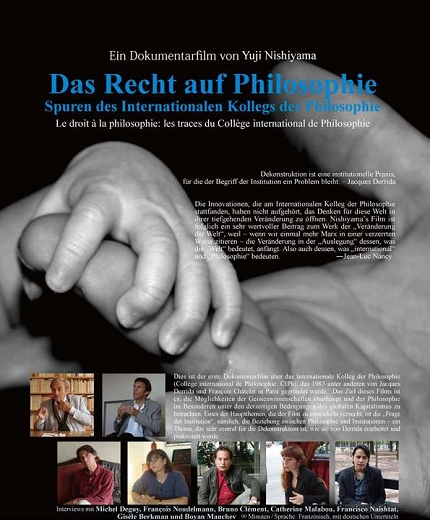
Das Recht auf Philosophie: Spuren des Internationalen Kollegs der Philosophie
Das Recht auf Philosophie: Spuren des Internationalen Kollegs der Philosophie
(Le droit à la philosophie: les traces du Collège international de Philosophie)
Ein Dokumentarfilm von Yuji Nishiyama
Dekonstruktion ist eine institutionelle Praxis, für die
der Begriff der Institution ein Problem bleibt. – Jacques Derrida
Dies ist der erste Dokumentarfilm über das Internationale Kolleg der Philosophie (Collège international de Philosophie: CIPh), das 1983 unter anderen, von Jacques Derrida und François Châtelet in Paris gegründet wurde. Der Film besteht aus Interviews mit den ehemaligen Präsidenten Michel Deguy, François Noudelmann und Bruno Clément, dem derzeitigen Vizepräsidenten Boyan Manchev, und den ehemaligen und aktuellen Programmdirektoren Catherine Malabou, Francisco Naishtat und Gisèle Berkman. Das Ziel dieses Films ist es, die Möglichkeiten der Geisteswissenschaften überhaupt und der Philosophie im Besonderen unter den derzeitigen Bedingungen des globalen Kapitalismus zu betrachten. Eines der Hauptthemen, die der Film zu entwickeln versucht, ist die „Frage der Institution“, nämlich, die Beziehung zwischen Philosophie und Institutionen – ein Thema, das sehr zentral für die Dekonstruktion ist, wie sie von Derrida erarbeitet und praktiziert wurde.


Der Film besteht aus acht Kapiteln. Im ersten einleitenden Kapitel, „Profile“, stellt jeder Interviewpartner sein oder ihr eigenes Profil in Beziehung zum CIPh dar. Das folgende Kapitel, „Die Definition des CIPh“, hebt die äußerst originellen Charakteristika der Forschung und pädagogischen Tätigkeiten des Kollegs hervor. Im dritten Kapitel, „Das CIPh und Universitäten“, erklären die Interviewten die besondere Natur des CIPh im Vergleich zu anderen akademischen Institutionen, einschließlich seines Prinzips der Gebührenfreiheit, die Gleichberechtigung unter den Professoren, und seine Konzeption der Lehrpläne und Programme. Das vierte Kapitel, „Die Idee des CIPh“, stellt den vom Kolleg etablierten Begriff der „Intersektion“ dem Begriff der Interdisziplinarität solcher Abteilungen wie Kulturwissenschaften oder Vergleichende Forschung hauptsächlich in der angelsächsischen akademischen Landschaft gegenüber. Das fünfte Kapitel, „Das CIPh und ökonomischer Wert“, präsentiert entscheidende Probleme, denen sich die Geisteswissenschaften angesichts der Forderung des globalen Kapitalismus nach Rentabilität, Effizienz, Exzellenz usw. stellen muss. Das sechste Kapitel, „Die Frage nach dem Ort“, fragt, wo Forschung und pädagogische Tätigkeit stattfinden kann und führt das CIPh als Beispiel einer Institution ohne Campus an. Das siebte Kapitel, „Probleme“, stellt unterschiedliche Schwierigkeiten vor, denen das CIPh gegenwärtig gegenübersteht. Im letzten Kapitel „Jacques Derrida und das CIPh“, erinneren sich die Interviewten an Derrida’s Beiträge zur Philosophie und zum Kolleg.


Seit September 2009 wurde und wird dieser Film an zahlreichen Orten in den USA (The New School for Social Research, Cornell University, New York University, Yale University), Frankreich (Collège internationale de Philosophie, Université de Paris VIII, Université de Bordeaux III), Japan (mehr als 20 Universitäten), Hongkong, Korea, Deutschland und England gezeigt.


Die Innovationen, die am Internationalen Kolleg der Philosophie stattfanden, haben nicht aufgehört, das Denken für diese Welt in ihrer tiefgehenden Veränderung zu öffnen. Nishiyama’s Film ist folglich ein sehr wertvoller Beitrag zum Werk der „Veränderung der Welt“, weil – wenn wir einmal mehr Marx in einer verzerrten Weise zitieren – die Veränderung in der „Auslegung“ dessen, was die „Welt“ bedeutet, anfängt. Also auch dessen, was „international“ und „Philosophie“ bedeuten. (Jean-Luc Nancy, Professor emeritus an der Université de Strasbourg)
Nishiyama’s Film ist kein Film über die Vergangenheit. Er ist ein Dokument von unschätzbarem Wert, der dem Collège International de Philosophie eine Zukunft eröffnet. Die Situation der Philosophie in der Welt befragend, zeichnet dieser Film die Ausrichtung dessen, was die Hauptausrichtung des zukünftigen Denkens sein sollte. (Catherine Malabou, Professorin an der Université de Paris X)
Eine wundervolle, vielen Kontexten gegenüber offene filmische Dukumentation, ein außergewöhnlicher Film über das Thema der Philosophie, der die Sicht aus vielen verschiedenen Blickwinkeln einfordert. Nishiyama’s Interviews mit den Fakultätsmitgliedern des Collège International de Philosophie wirbt beim Publikum darum, über Philosophie außerhalb des engen Horizonts Europas und des Westens nachzudenken. Durch das filmische Mittel gelingt es Nishiyama, uns an die Aufgabe zu erinnern, derer sich die zeitgenössische Philosophie annehmen muss, an ihre Verantwortung dafür, Teil der Welt jenseits des Diskurses „der Westen und der Rest“ zu sein. (Naoki Sakai, Professor an der Cornell University)
Details des Filmes
Interviews mit Michel Deguy, François Noudelmann, Bruno Clément, Catherine Malabou, Francisco Naishtat, Gisèle Berkman und Boyan Manchev
Musik: Matryoshka
Regie: Yuji Nishiyama
Spielzeit: 84 Minuten
Sprache: Französisch, mit englischen, japanischen, koreanischen und deutschen Untertiteln.
Über den Regisseur, Yuji Nishiyama
Professor, Metropolitan University of Tokyo
Yuji Nishiyama erhielt 2006 den PhD von der Fakultät für Sprache und Gesellschaft an der Universität Hitotsubashi. Er lehrt seit 2010 an der Metropolitan University of Tokyo. Er arbeitet über zeitgenössische französische Philosophie, vor allem über Jacques Derrida und Maurice Blanchot. In den vergangenen Jahren forscht er an einem Projekt mit dem Titel „Philosophie und Universität“. Er ist der Autor von Literature as Contestation: Solitude, Friendship and Community in Maurice Blanchot (Tokyo: Ochanomizu-syobô 2007), und der Herausgeber von Philosophie et Éducation II: Le droit à la philosophie (UTCP 2009), und Philosophy and the University (Tokyo: Miraisha 2009). Er ist auch der japanische Übersetzer mehrerer Bücher von Jacques Derrida, Maurice Blanchot, Jean-Luc Nancy, Emmanuel Levinas und Catherine Malabou.
Korean
다큐멘터리 철학에의 권리――국제철학학교의 자취
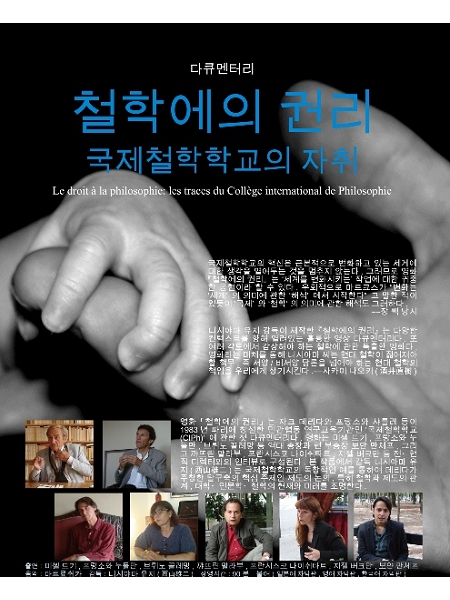
다큐멘터리 철학에의 권리――국제철학학교의 자취
다큐멘터리 철학에의 권리――국제철학학교의 자취
(Le droit à la philosophie: les traces du Collège international de Philosophie)
‘탈구축은 제도라는 개념을 끊임없이 문제삼아야 하는 제도적 실천이다’――자크 데리다
영화「철학에의 권리――국제철학학교의 자취」는 자크 데리다와 프랑소와 샤틀레 등이 1983년 파리에 창설한 민관협동 연구교육기관인 ‘국제철학학교 (CIPH)’에 관한 첫 다큐멘터리다. 영화는 미셸 드기, 프랑소와 누들만, 브뤼노 끌레망 등 역대 총장과 현 부총장 보얀 만체프, 그리고 꺄뜨린 말라부, 프란시스코 나이쉬타트, 지젤 버크만 등 전・현직 디렉터와의 인터뷰로 구성된다. 본 작품에서 감독 니시야마 유지(西山雄二)는 국제철학학교의 독창적인 예를 통하여 데리다가 주창한 탈구축의 핵심 주제인 제도의 논의, 특히 철학과 제도의 관계, 대학・인문학・철학의 현재와 미래를 조명한다. 


지금까지 2009년9월 미국 상영, 일본 순회 상영, 2010년 2월 프랑스 상영 등 26회 상영을 하였고 총 1700명의 관객이 관람했다. 앞으로 홍콩, 한국, 독일, 영국 등지에서 순회 상영할 예정이다.
국제철학학교의 혁신은 근본적으로 변화하고 있는 세계에 대한 생각을 열어두는 것을 멈추지 않는다. 그러므로 영화『철학에의 권리』는 ‘세계를 변화시키는’ 작업에 대한 귀중한 공헌이라 할 수 있다. 우회적으로 마르크스가 “변화는 ‘세계’의 의미에 관한 ‘해석’에서 시작한다”고 말한 적이 있듯이 ‘국제’와 ‘철학’ 의 의미에 관한 해석도 그러하다.――장 뤽 낭시 (스트라스부르 대학 명예교수) 


영화『철학에의 권리』는 과거를 다룬 영화가 아니다. 국제철학학교의 미래를 여는 아주 중요한 다큐멘터리다. 지금의 철학적 상황을 문제삼고 있는 이 작품이 제시하는 방향은 미래적 사고를 위한 중대한 지침이 될 것이다.――꺄뜨린 말라부 (파리 5대학 부교수)
니시야마 유지 감독이 제작한『철학에의 권리』는 다양한 컨텍스트를 향해 열려있는 훌륭한 영상 다큐멘터리다. 또 여러 각도에서 감상해야 하는 철학에 관한 특출한 영화다. 영화라는 매체를 통해 니시야마 씨는 현대 철학이 짊어져야 할 책무, 즉 서양/비서양 담론을 넘어야 하는 현대 철학의 책임을 우리에게 상기시킨다.――사카이 나오키(酒井直樹) (코넬대학 교수, 『흔적』편집주간) 


출연:미셸 드기, 프랑소와 누들만, 브뤼노 끌레망, 꺄뜨린 말라부, 프란시스코 나이쉬타트, 지젤 버크만, 보얀 만셰프
감독:니시야마 유지 (西山雄二) 음악:마트료쉬카
상영시간:84분 불어(일본어 자막판, 영어 자막판, 한국어 자막판)
